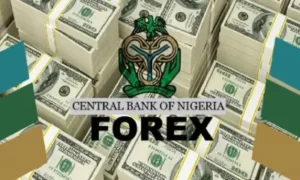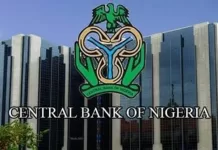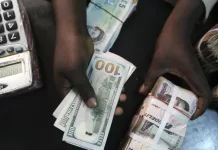Nigeria’s forex reserves lost so much weight during Godwin Emefiele’s reign at the Central Bank.
Unfortunately, that unhealthy progression has continued. Yet those who do not know this still wonder why FX is scarce.

Data from the Central Bank of Nigeria (CBN) has revealed that foreign exchange reserves have fallen further since Godwin Emefiele’s exit.
The foreign exchange reserves shed $1.65 billion in six months.
Data showed that it fell from $34.62 billion in June 2023 to $32.97 billion in December 2023, shedding $1.65 billion.
Have You Read: NGX: See How Stock Market Performed In November
The decline in the FX reserves has been blamed for the fall in the Naira rate and the limited capacity of Nigeria to earn FX from both non-oil and oil exports.
Increasing FX demand has, however, seen the naira weaken by more than 40% since June.
Challenges Of FX Market In Nigeria
In July, the apex bank noted that accrual to external reserves remained weak while foreign exchange demand pressures persisted.
During the bank’s Monetary Policy Committee meeting, one of the members, Obadan Mike, explained the major problem of the foreign exchange market.
He fingered inadequate forex supply, reflecting low productivity in the economy, inadequate export earnings, and limited foreign capital inflows.
Obadan expressed worry that the country’s external reserves were in an uncomfortable position and were a key concern for the domestic economy.
Nigeria Does Not Have Enough FX Reserves
Recently, the Economist Intelligence Unit, in its Africa Outlook, disclosed that Nigeria doesn’t have enough in its FX reserves to back up its exchange rate unification policy.
You May Also Like: NGX: Market Cap Drops As ASI Appreciates By 0.08%
It said: “In Nigeria, an unsupportive monetary policy implies that the Naira will remain under pressure while the central bank lacks the firepower to adequately supply the market or clear a backlog of foreign exchange orders, which will keep foreign investors unnerved.
“High inflation and a continued spread with the parallel market will leave the exchange rate regime unstable and result in periodic devaluations.””






